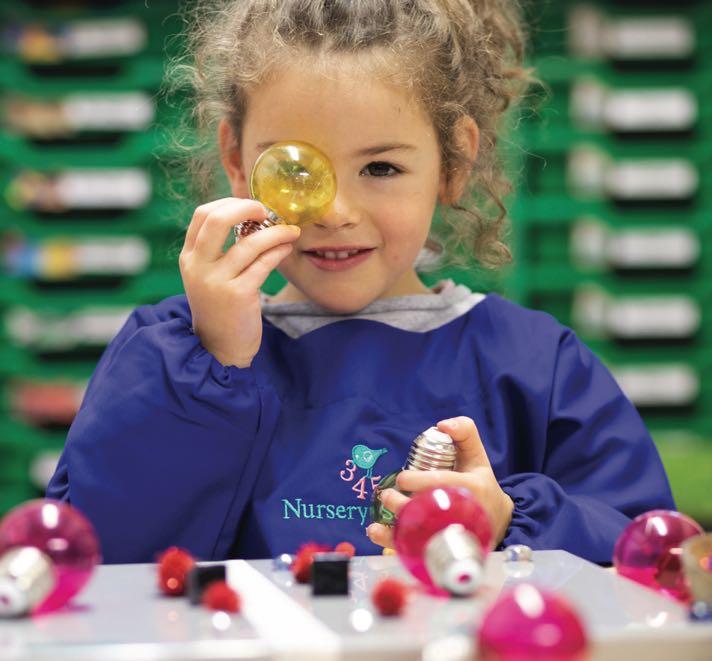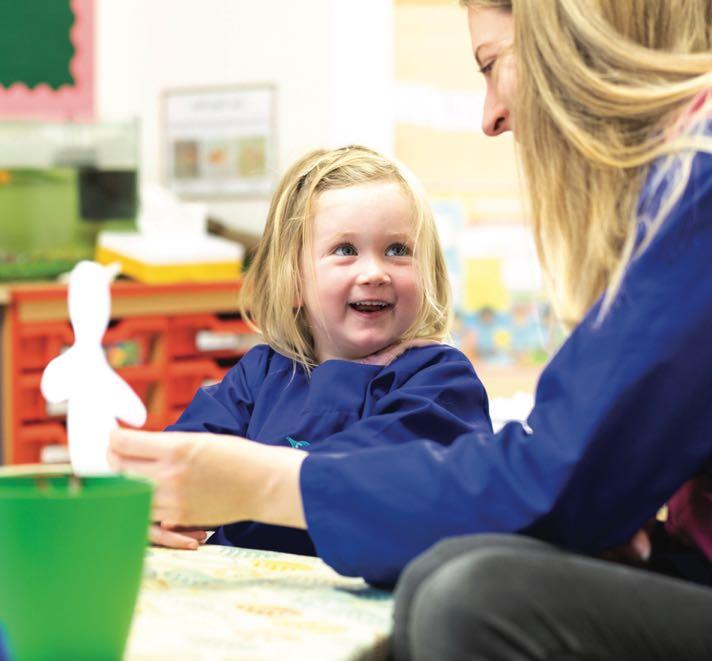
1 minute read
[New] How logical thinking helps children achieve goals


Advertisement

By Usha Patel
My 6-year-old nephew came around the other day for tea and cake. In the middle of a conversation, he loudly declared he was on his eighth ‘mini-cake.’ These were bite-sized morsels made for tiny hands. It made me chuckle that a child of just 6 years would think to measure the increasing joy that eating cake could bring! I looked down at my plate and wondered how many I had gobbled up….
However, many children don’t see patterns, numbers or the need for measuring.
A 10-year-old student I recently worked with really wanted to play football but was reluctant because she had great di iculty tying her shoelaces. I taught her how to do it in five easy steps, explaining that she would achieve her goal but that some steps might be trickier than others.
Before our work together, she had thought of tying laces as one task. By breaking down the task into a series of logical steps, she could see which parts were more complex and which were manageable. She quickly got the hang of it by paying closer attention to those bits she thought were fiddly and not feeling as frustrated as she had before.
With my instruction, she practised regularly at home and each time she would get faster at the bits she found tricky. When she returned a couple of weeks later, she boasted she could now tie her laces very quickly and insisted on showing me with her brand-new trainers.
So what does this teach us? That when tasks are broken down into logical steps, success is possible.
When a child does not apply logic and reasoning to a di icult task, how they feel about the task dominates their approach. But we can’t measure feelings in the same way we can measure steps - or even cake! They are not objective and so the cycle of frustration continues and a child reinforces an unfair bias against their own ability.
Measuring progress allows a child to see for themselves what is going wrong. They then can problem-solve, achieve success and meet their intended goal.
Logical thinking takes time to nurture but once success is achieved, parents should celebrate. Decide on another goal and repeat a similar logical process.
Usha Patel is a neurocognitive therapist who runs Raviv Practice London (www.ravivpracticelondon.co.uk).

![[New] What’s On Jan/Feb](https://assets.isu.pub/document-structure/230106015702-e1d22ed6be5e16989a916f14d461333c/v1/112af2d283ee5f21d2ebf5aaf8292902.jpeg)








